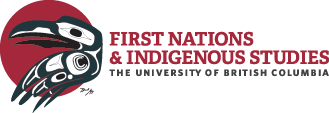UN Declaration on the Rights of Indigenous Peoples
…the UN. General Assembly. The non-signatories: Australia, Canada, New Zealand, and the United States Australia, New Zealand, Canada, and the United States initially refused to sign the UNDRIP. The four…
Bill C-31
…under the Canadian Charter of Rights and Freedoms. It proposed modifications to various sections of the Indian Act, including significant changes to Indian status and band membership, with three major…
ILO Convention 107
…18 countries.3 By Erin Hanson. Links & Recommended Resources International Labour Organization website: www.ilo.org Convention 107: https://www.ilo.org/dyn/normlex/en/fp=NORMLEXPUB:12100:0::NO::P12100_ILO_CODE:C107 “Indigenous and Tribal Peoples” https://www.ilo.org/global/topics/indigenous-tribal/lang–en/index.htm Nations that ratified Convention 107: https://www.ilo.org/dyn/normlex/en/f?p=1000:11300:0::NO:11300:P11300_INSTRUMENT_ID:312252 Endnotes 1…
ILO Convention 169
…they please.”2 Current Role of the Convention Only 21 nations have ratified Convention 169, fewer than those that ratified its predecessor, ILO Convention 107. The decrease in signatories can be…
Terminology
…a sign of respect to the people you are referring to. Therefore, it may not be necessary to capitalize when using the term as an adjective and not in direct…
Aboriginal Identity & the Classroom
…legal termination of Indian status is called “enfranchisement,” and affected generations of Aboriginal women and their descendents. There are significant consequences to being enfranchised, among them the loss of the…
Aboriginal Fisheries in British Columbia
…permit to fish for food.26 Historian Douglas Harris suggests that the introduction of permits for Native food fisheries is significant in that it “effected the legal capture of the fisheries,”…
About Sovereignty Performance
…a need to promote Aboriginal Sovereignty Week here in Newfoundland. It was around the time that many people of aboriginal decent in the area were applying for the “Qalipu First…

